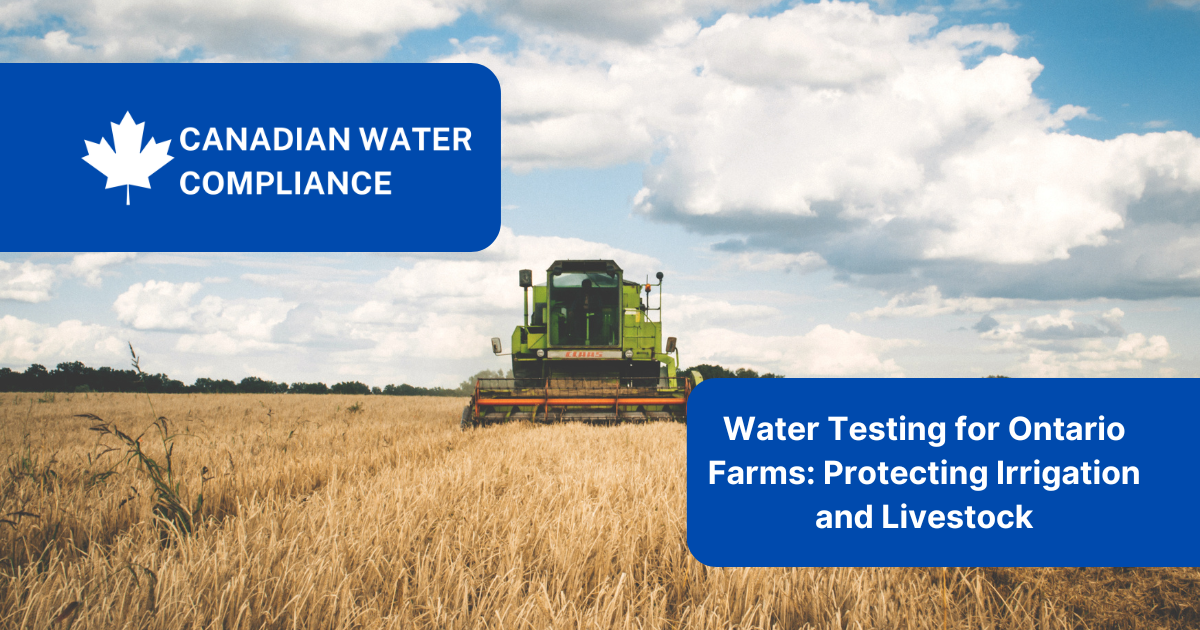
Written By: Canadian Water Compliance | On
Water Testing for Ontario Farms: Protecting Irrigation, Livestock, and Compliance
Clean, safe water is essential for every aspect of Ontario farming—from crop irrigation to livestock hydration. Yet many farm operations still overlook regular water testing, especially when relying on wells, cisterns, or surface water. Not only does this pose a health risk to animals and consumers, but it can also affect regulatory compliance, yields, and long-term viability.
Here’s what Ontario farmers need to know about water testing for agricultural use.
Agricultural operations often use non-municipal water sources such as:
Private wells or boreholes
Surface water (ponds, rivers, or creeks)
Cisterns and water tanks
These sources are vulnerable to contamination from manure, fertilizers, pesticides, and runoff. Without regular testing, farmers risk introducing harmful pathogens or chemicals into irrigation lines, feeding systems, or processing equipment.
Contaminated water can lead to:
Livestock illness and mortality
Crop damage or reduced yield
Unsafe food products
Equipment fouling or corrosion
Regulatory non-compliance and fines
Testing requirements depend on water use, but Canadian Water Compliance recommends:
Microbiological testing (E. coli, Total Coliforms) – for drinking water and livestock watering systems
Nitrate and Nitrite testing – particularly critical for ruminant health
pH, Hardness, Sodium, Sulphate – for irrigation and equipment compatibility
Pesticide and heavy metal screening – in high-risk areas or for food crop production
Customized packages – tailored to greenhouse operations, dairy farms, poultry facilities, etc.
Frequency varies based on source and use, but most agricultural clients benefit from quarterly to semi-annual testing.
While there’s no single law governing farm water testing in Ontario, several regulations and programs apply:
Ontario Ministry of Agriculture, Food and Rural Affairs (OMAFRA) provides guidelines for irrigation and livestock water quality
Canadian Food Inspection Agency (CFIA) requires water quality controls in federally registered food processors
CanadaGAP and other food safety programs mandate regular water testing for certification
Farmers should also consult with their local conservation authority or public health unit if unsure of obligations.
We help farms across Ontario protect their operations with reliable, accurate testing solutions:
Certified lab analysis for bacteria, chemistry, and trace contaminants
On-site sampling by trained water technicians
Farm-specific testing packages based on your operation’s needs
Interpretation of results and treatment recommendations
Coordination with CFIA or other regulatory bodies as needed
Whether you manage a dairy, poultry farm, vineyard, or greenhouse, we ensure your water is safe, compliant, and optimized for success.